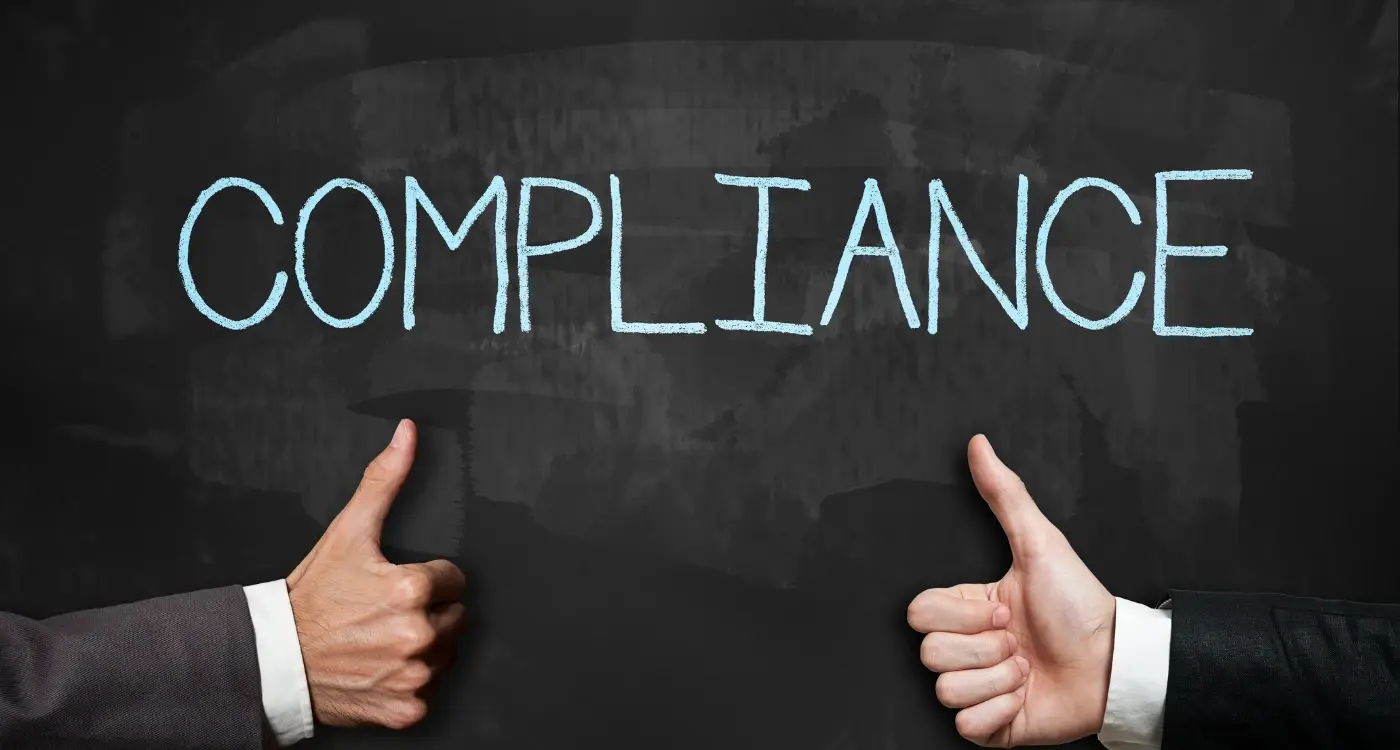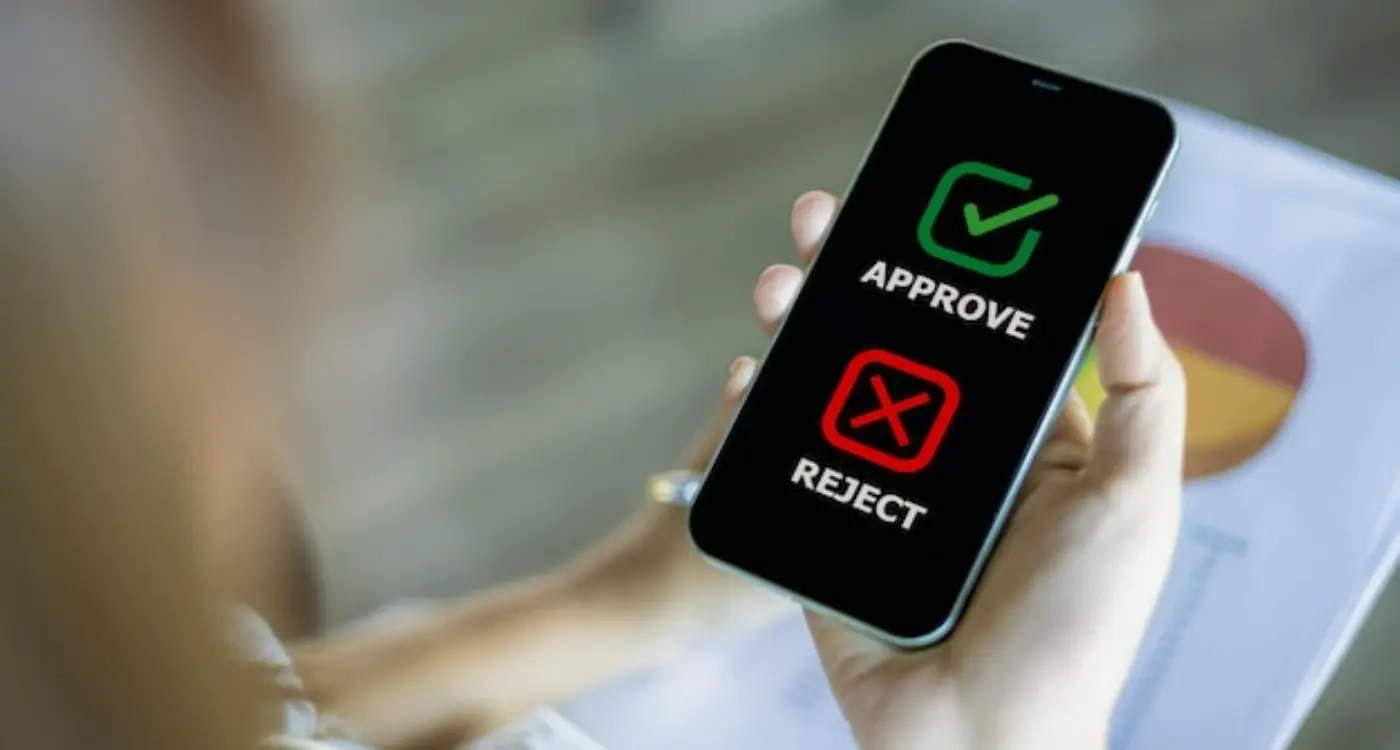How Long Does Regulatory App Review Actually Take?
You've built your app, tested it thoroughly, and you're ready to launch. Then reality hits—regulatory reviews can stretch your timeline by weeks or even months depending on what your app does and where you plan to release it. I've watched countless clients underestimate this part of the process, only to find themselves explaining to stakeholders why their launch date just shifted by six weeks.
The truth is, there's no single answer to how long regulatory review takes because it depends entirely on your app's functionality and the regulations it needs to comply with. A simple utility app might sail through standard app store review in 24-48 hours, while a healthcare app handling patient data could face months of regulatory scrutiny before it sees the light of day.
What makes this particularly frustrating is how unpredictable the process can be. I've seen identical apps from the same company get approved at completely different speeds simply because one reviewer had questions that another didn't. It's not just about following the rules—it's about understanding how different regulatory bodies work, what triggers additional scrutiny, and how to structure your submission to avoid common pitfalls.
The biggest mistake I see developers make is treating regulatory review as an afterthought rather than a core part of their development timeline
Whether you're dealing with App Store guidelines, medical device regulations, financial compliance requirements, or data protection laws, each comes with its own timeline and potential complications. Understanding these different review processes—and planning for them properly—can mean the difference between a smooth launch and a delayed disaster that costs you market opportunity and stakeholder confidence.
Understanding Different Types of Regulatory Reviews
Not all app reviews are created equal, and honestly, this is where a lot of developers get caught off guard. You might think "an app is an app" but the reality is much more complex than that. Different types of apps face completely different regulatory hurdles—and the timelines can vary wildly depending on what your app actually does.
Let me break this down for you. A simple photo editing app? That's going through standard app store review and you're looking at maybe a few days to a week. But if you're building a medical device app that monitors heart rates, you're potentially dealing with months of regulatory approval processes. It's a bit mad really, but these distinctions matter hugely for your launch timeline.
The Main Categories You Need to Know
Here are the primary types of regulatory reviews your app might face:
- Standard App Store Review - Basic functionality, content guidelines, and technical requirements
- Medical Device Classification - FDA approval for health-related apps with diagnostic capabilities
- Financial Services Compliance - Banking regulations, payment processing, and consumer protection
- Data Protection Reviews - GDPR compliance, privacy audits, and data handling verification
- Age Rating and Content - Gaming classifications, parental controls, and content appropriateness
- Educational Standards - COPPA compliance for children's apps and educational certifications
The key thing to understand is that these aren't mutually exclusive. A children's health app might need to go through medical device review, age rating classification, and COPPA compliance all at once. Each layer adds time and complexity to your approval process.
What really catches people out is when their "simple" app actually falls into multiple categories. I've seen fitness apps that seemed straightforward suddenly need medical device approval because they started giving health advice. Planning for the right type of review from day one can save you months of delays later on.
The Standard App Store Review Process
Right, let's talk about the bread and butter of app reviews—the standard App Store process that most of us deal with regularly. Apple and Google have their own timelines, and honestly, they can be a bit unpredictable at times.
Apple's App Store typically takes 24-48 hours for most standard apps. That's their official line anyway. In my experience, it's usually closer to the 48-hour mark, sometimes stretching to 72 hours if there's a holiday or if they're swamped with submissions. Google Play is generally faster—most apps get approved within a few hours, though their automated systems can sometimes flag things that need human review, which adds another day or two.
Always submit your app updates on Tuesday or Wednesday. Avoid Friday submissions like the plague—if there are issues, you'll be waiting until Monday for any meaningful response from the review teams.
Here's what actually happens during a standard review:
- Automated scanning for malware and policy violations
- Basic functionality testing on real devices
- Content review for age-appropriate material
- Metadata verification (descriptions, screenshots, etc.)
- Privacy policy and data usage validation
The thing that trips most people up? Rejections. About 30% of first-time submissions get rejected for something silly—missing privacy policies, broken links in descriptions, or screenshots that don't match the actual app functionality. Each rejection adds another 24-48 hours to your timeline, so getting it right the first time is worth its weight in gold.
One thing I've noticed over the years is that both stores are getting stricter about metadata quality. They're not just checking if your app works; they want to make sure your store listing accurately represents what users will actually get when they download it.
Healthcare and Medical App Requirements
Right, let's talk about healthcare apps—because honestly, this is where things get proper complicated. If you're building anything that touches medical data or provides health advice, you're looking at a completely different timeline than your average social media app.
The big question everyone asks me is whether their health app needs FDA approval. Here's the thing: it depends on what your app actually does. If you're just tracking steps or reminding people to drink water, you're probably fine with standard app store reviews. But if your app diagnoses conditions, calculates drug dosages, or makes treatment recommendations? That's when the FDA gets involved, and we're talking months, not weeks.
HIPAA Compliance and Data Handling
Before you even think about submitting to app stores, you need to get your HIPAA compliance sorted. I've seen brilliant healthcare apps get rejected because they didn't properly handle patient data. The app stores are getting stricter about this stuff, and they'll check your privacy policies with a fine-tooth comb.
Your data encryption needs to be spot-on, your user consent flows crystal clear, and your third-party integrations properly vetted. Apple and Google both have specific healthcare review teams now, and they know what to look for.
Typical Healthcare App Review Timeline
Here's what you're realistically looking at for different types of health apps:
- Wellness and fitness apps: 3-7 days (standard review)
- Health data collection apps: 1-2 weeks (additional privacy review)
- Medical reference apps: 2-4 weeks (content accuracy checks)
- Clinical decision support tools: 4-12 weeks (may require FDA clearance)
- Diagnostic or treatment apps: 3-6 months (definitely needs FDA approval)
The key is knowing which category your app falls into before you start development. I always tell clients to engage with regulatory consultants early—it'll save you months of back-and-forth later on. Trust me, getting this wrong is expensive.
Financial Services App Compliance
Right, let's talk about financial services apps—because honestly, this is where things get properly complicated. If you're building anything that handles money, payments, or financial data, you're looking at a much longer approval timeline. We're not talking weeks here; we're talking months in some cases.
The Financial Conduct Authority (FCA) doesn't mess about when it comes to apps that handle people's money. They want to see everything—your security protocols, data encryption methods, fraud prevention systems, the lot. I've had clients who thought they could rush through this process and ended up waiting six months for approval because they hadn't dotted their i's properly.
What Actually Takes the Time
Banking apps need the most scrutiny, obviously. You're looking at 12-16 weeks minimum for a full banking app review. Payment apps like digital wallets? Still around 8-12 weeks. Even simple budgeting apps that connect to bank accounts can take 6-8 weeks because they're handling sensitive financial data.
The biggest mistake I see is developers thinking they can handle compliance as an afterthought—by then its too late and you're looking at massive delays
Here's what really slows things down: anti-money laundering checks, Know Your Customer (KYC) verification systems, and proving your fraud detection actually works. The regulators want to test these systems thoroughly, and rightly so. You'll need proper documentation for everything, including your incident response procedures and how you handle suspicious transactions.
Planning for Success
Start your compliance work early—I mean really early. Begin the regulatory approval process at least 4-6 months before you want to launch. Work with compliance specialists who understand the FCA's requirements inside and out. Trust me, trying to save money on compliance expertise will cost you far more in delays and rejected submissions.
Data Protection and Privacy Reviews
Right, let's talk about privacy reviews—because honestly, this is where things get properly complicated. I've seen apps that sailed through technical reviews only to get stuck for weeks on privacy compliance. It's a bit mad really, but data protection has become one of the biggest hurdles in app approval.
The timeline for privacy reviews varies massively depending on your apps data practices. If you're collecting minimal data and storing it locally? You might add just 2-3 days to your standard review. But if you're handling sensitive personal information, processing payments, or sharing data with third parties, you could be looking at 2-3 weeks of additional scrutiny.
What Triggers Extended Privacy Reviews
Apple and Google have specific triggers that flag apps for deeper privacy review. These include collecting location data, accessing contacts or photos, using advertising identifiers, or integrating with social media platforms. Each of these requires detailed privacy policy explanations and proper user consent flows.
I always tell clients to prepare their privacy documentation before development even starts. You'll need a comprehensive privacy policy that actually matches what your app does (not just some template you found online), clear consent dialogs, and proper data handling procedures. The reviewers aren't just checking boxes; they're genuinely examining whether your privacy practices align with your stated policies.
Common Privacy Review Delays
- Privacy policy doesn't match actual app behaviour
- Missing or unclear consent dialogs for data collection
- Inadequate explanation of third-party data sharing
- Location tracking without proper justification
- Children's apps without COPPA compliance documentation
The key is transparency. Be upfront about what data you collect, why you need it, and how you protect it. Apps that try to hide their data practices or use vague language in their privacy policies almost always face delays. Budget an extra week for privacy review if you're handling any personal data beyond basic account information.
Gaming and Age-Rating Considerations
Gaming apps face some of the most complex regulatory hurdles in the mobile world, and honestly, it can be a proper minefield if you're not prepared. The process involves multiple layers of review—age rating bodies, gambling commissions (if applicable), and standard app store policies—each with their own timelines and requirements.
The Entertainment Software Rating Board (ESRB) in North America and the Pan European Game Information (PEGI) system in Europe are your main concerns for age ratings. ESRB typically takes 1-2 weeks for digital-only releases, while PEGI can stretch to 3-4 weeks depending on content complexity. But here's the thing—if your game includes any social features, user-generated content, or in-app purchases, expect additional scrutiny that can double these timeframes.
Common Gaming Review Delays
I've seen gaming apps get stuck in review purgatory for months, and it's usually down to a few specific issues. Loot boxes are the biggest headache—regulators across different countries have varying definitions of what constitutes gambling. Belgium and Netherlands are particularly strict, while the UK and US have more relaxed approaches. Social features like chat systems require robust moderation tools, especially for games targeting younger audiences.
Submit your age rating applications before you even start app store submission. The rating certificates are required for store approval, and waiting until the last minute can add weeks to your launch timeline.
In-app purchase mechanics also trigger extended reviews. If you're implementing any form of randomised rewards or competitive elements involving real money, budget for at least 6-8 weeks of additional regulatory review time on top of standard app store processes.
| Game Type | Additional Review Time | Key Concerns |
|---|---|---|
| Casual/Puzzle | 1-2 weeks | Age rating, ads content |
| Social Gaming | 3-4 weeks | Chat moderation, user safety |
| Games with Gambling Elements | 6-12 weeks | Regulatory compliance, licensing |
Planning Your Review Timeline
Right, let's talk about the bit that keeps most developers checking their emails obsessively—planning your actual timeline. After years of submitting apps and watching clients stress about deadlines, I can tell you that most people get this completely wrong. They plan for the best-case scenario and then panic when reality hits.
The golden rule? Always add buffer time. I mean always. Even if you're building a simple utility app with zero regulatory complications, things can go sideways. Apple might reject your app because your screenshots don't match the latest interface guidelines (yes, this happens), or Google might flag something in your privacy policy that needs tweaking.
Building Your Buffer Strategy
Here's how I structure timelines for different types of apps, and honestly, these numbers are based on real-world experience—not the optimistic estimates you'll find elsewhere:
- Standard consumer apps: Add 2-3 weeks buffer to your launch date
- Healthcare apps requiring FDA review: Add 3-6 months (seriously)
- Financial services apps: Add 6-8 weeks minimum
- Gaming apps with complex monetisation: Add 3-4 weeks
- Enterprise apps with security reviews: Add 4-6 weeks
The Reality Check
But here's the thing—it's not just about individual review times. You need to account for the domino effect. If your healthcare app gets rejected by Apple, you might need to make changes that then require another FDA consultation. That's another month right there.
I always tell clients to work backwards from their absolute drop-dead launch date, then subtract all these buffers. That's your real development deadline. It might seem conservative, but I'd rather have a client launch early than miss their market window because they didn't plan properly.
After eight years of shepherding apps through every type of regulatory review you can think of, I can tell you this with absolute certainty—there's no magic formula for predicting exact timelines. But here's what I've learned: apps that get approved quickly aren't just lucky; they're prepared.
The clients who plan for the longest possible timeline are always the ones who sleep better at night. When you budget for a 12-week medical device review and it comes back in 8 weeks? That's a win. When you assume it'll take 2 weeks and it takes 6? That's when project managers start getting grey hair.
I've seen too many brilliant apps miss their launch windows because someone underestimated the compliance process duration. The regulatory review time isn't just about ticking boxes—it's about proving your app deserves to be trusted with people's data, health, or money. That takes as long as it takes.
My advice after all these years? Add 50% to whatever timeline you think is realistic. If you're dealing with healthcare data, make it 75%. If you're handling payments in multiple countries, double it. This isn't pessimism; it's professional experience talking.
The app approval timeline will always have variables outside your control—regulatory changes, reviewer workload, even seasonal patterns affect processing times. But what you can control is your preparation. Document everything. Test thoroughly. Answer questions before they're asked.
For enterprise apps in particular, planning ahead for security protocol requirements can save months of delays when corporate compliance teams need extensive documentation. Similarly, if you're building something with complex technical requirements like 5G mobile app development, factor in additional time for technical review processes.
Working with remote development teams adds another layer of complexity, as coordination across time zones can slow down the rapid response sometimes needed during regulatory review processes.
Remember, regulatory review isn't the enemy of your launch—it's the gatekeeper that ensures your app can actually serve users safely and legally. Respect the process, plan accordingly, and you'll find that compliance becomes just another project milestone rather than a source of stress.
Share this
Subscribe To Our Learning Centre
You May Also Like
These Related Guides

What Are the Legal Requirements for Apps Built with Vibe Coding?

What Binary Requirements Must Your App Meet for Approval?



